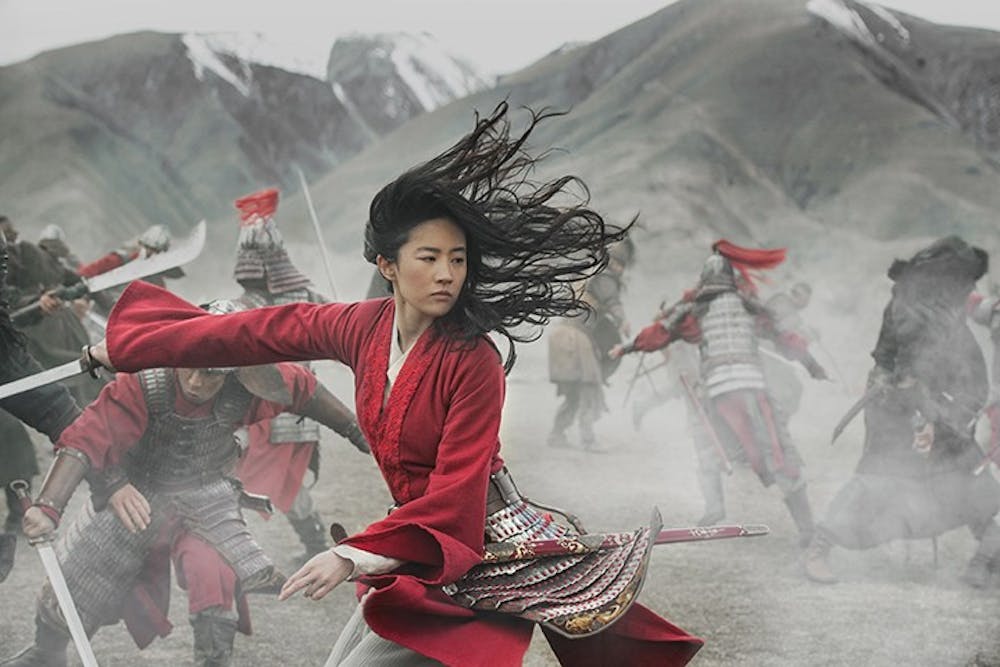Over the past decade, Walt Disney Pictures has been in the process of remaking its animated classics, and it should stop. Once one scratches away the glamour of taking a legendary animated film and setting it in the “real world,” they would find all of these films are inferior to their original at best and, at worst, insult their original material.
Beginning with "Alice in Wonderland" (2010), these films, including "Cinderella" (2015), "Beauty and the Beast" (2017) and "Mulan" (2020), have all been financial successes, with "Beauty and the Beast" grossing approximately $1.264 billion worldwide. Because of this, Disney has announced further remakes, including "The Little Mermaid" and "Peter Pan."
Generally, these movies suffer from the same problems. The first is just how close Disney generally attempts to stay to the original films. For all intents and purposes, many of these live-action remakes attempt to be shot-for-shot remakes of the animated films. For many, the gimmick of seeing that is enough.
However, this is Disney — the company that is responsible for some of the smartest, most charming and most imaginative properties to exist in fiction. To rely so easily on this cheap gimmick is lazy for artists of Disney’s caliber. Additionally, the idea of making a shot-for-shot remake is bewildering. Why should someone pay money to see the exact same movie with different people when they could just watch the original, near-perfect movies?
Remakes, to be accepted as good, generally have to innovate or do something new with the source material. For example, take the Dark Knight trilogy (2005-2012). While it never claimed to be a direct remake of the 1980s and '90s Tim Burton Batman movies, they very well could have been if they took the same route Disney has been taking with its remakes.
Instead, the Dark Knight trilogy changed enough to distinguish itself from those previous movies. It had a darker tone, unique twists and a more grounded and realistic universe, giving rise to one of the best comic book movies in history, "The Dark Knight" (2008).
However, that is not to say the Disney remakes don’t try to add new things. It just so happens that when they do, they usually go horribly wrong and end up hurting the movie even more. For example, take literally all of "Mulan" (2020).
The story of Mulan, both in the original Chinese ballad and the Disney animated film, is a story that follows the classic hero’s journey. Mulan is just a normal person in Imperial China who does the selfless act of volunteering to take her father's place during wartime while at the same time trying to discover who she is and her place in the world. It’s a genuinely charming story with good morals, memorable characters and beautiful imagery. The remake has none of those things.
The remake casts out Mulan’s normality in favor of a massive misrepresentation of the Chinese concept of chi, which for all intents and purposes are used as Asian superpowers. Additionally, she is already amazing at fighting in the remake. Those two things are antithetical to Mulan’s journey of learning and growing as a character.
On top of that, there are flat out nonsensical moments added for cheap “girl power” moments, such as Mulan removing her father’s protective armor — in the middle of a massive battle — and fighting in nothing but her normal clothes.
Other issues in Disney remakes include animation having benefits that are lost in shot-for-shot remakes and the alarming lack of originality from the company that used to spew originality from its bones.
But the point stands clear: The Disney live-action remakes are all lazy and cheap cash grabs that rely solely on past nostalgia for their source material to be successful. And the only way to send a firm message to Disney to stop making them is to stop watching them.

